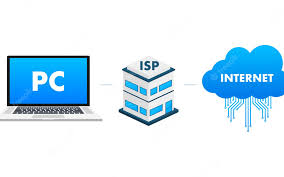In today’s digital age, IPTV (Internet Protocol Television) has gained significant popularity as a convenient and cost-effective way to access a wide range of television content over the internet. However, many IPTV users have encountered issues with their service, leading to suspicions that their Internet Service Providers (ISPs) may be blocking or throttling IPTV traffic. This article aims to guide you through the process of verifying if your ISP is indeed blocking IPTV and provides steps to address the issue.
Overview of IPTV and its benefits:
IPTV refers to the delivery of television content over the internet protocol, enabling users to stream their favorite shows, movies, and live channels on various devices, including smart TVs, smartphones, tablets, and computers. The benefits of IPTV include access to a vast array of on-demand content, flexible viewing options, and the ability to customize channel packages according to individual preferences.
What Is The Potential reasons for ISP blocking IPTV
ISPs may have several reasons for blocking or restricting IPTV traffic. These reasons could include concerns about copyright infringement, pressure from content providers or broadcasters, network congestion management, or adherence to legal and regulatory restrictions. Understanding the potential motivations behind ISP blocking can help users navigate the troubleshooting process effectively.
The Process here step by step
1. Basic checks
Before jumping to conclusions about ISP blocking IPTV, it is crucial to perform some basic checks to ensure that other factors are not causing the issue.
- Internet connectivity test
Start by verifying if you have a stable internet connection. Check if you can access other websites and services without any problems. If you encounter issues with general internet connectivity, it is likely unrelated to IPTV and should be resolved separately. - Firewall and antivirus software
Sometimes, firewall or antivirus software can inadvertently block IPTV traffic, leading to access issues. Ensure that your firewall or antivirus software settings do not interfere with the IPTV service. As a troubleshooting step, you can temporarily disable these security measures and check if it makes a difference in accessing IPTV.
2. DNS Checks
- DNS server settings
- The Domain Name System (DNS) is responsible for translating domain names into IP addresses. Incorrect or unreliable DNS server settings can hinder IPTV access. Verify your DNS server settings and consider using public DNS servers such as Google DNS (8.8.8.8, 8.8.4.4) or Cloudflare DNS (1.1.1.1, 1.0.0.1) for better reliability.
- DNS lookup and IP address verification
Perform a DNS lookup for the IPTV server’s domain name using tools like nslookup or online DNS lookup services. Check if the resolved IP address matches the expected server IP. If they differ significantly, it could indicate DNS-related issues that might affect IPTV access.
3. VPN Testing
- Virtual Private Network (VPN)
Using a reputable VPN service can bypass potential ISP restrictions or monitoring. A VPN creates a secure and encrypted connection to a server located outside your country, making it appear as if you are accessing the internet from that location. This step helps determine if the ISP is blocking IPTV or if there are other underlying issues. - IPTV accessibility with VPN
- Connect to a VPN server location outside your country and launch your IPTV service. If you can successfully access and stream IPTV content while connected to the VPN, it suggests that your ISP might be blocking or throttling IPTV traffic. However, if you still face difficulties, it could indicate other technical problems unrelated to your ISP.
4. Port Blocking
- Port forwarding
In some cases, IPTV traffic requires specific ports to be open for seamless access. Check if your router supports port forwarding and configure it to allow IPTV traffic. Refer to your IPTV service provider’s documentation for the required port numbers and the router’s user manual for instructions on port forwarding. - Port scanning
Use an online port scanning tool to check if the required IPTV ports are open and accessible from the internet. If the scanning results indicate that the ports are closed or filtered, it may suggest that the ISP is blocking or filtering specific port traffic, potentially affecting IPTV access. - Alternative port testing
- If the standard IPTV ports are being blocked, you can try accessing IPTV using different ports allowed by your ISP. Some ISPs might block well-known port numbers, but less common ports could still be available for IPTV traffic. However, note that using alternative ports may require additional configuration on your end and might not be supported by all IPTV providers.
5. Contact ISP Support
- Gather necessary information
Document your findings and troubleshooting steps along the way. Keep a record of your account details, connection information, and any error messages you encountered during the process. Having this information ready will help expedite your conversation with ISP customer support. - Contact ISP customer support
Reach out to your ISP’s customer support and explain the issue you’re facing with IPTV. Provide the relevant information you gathered and ask if they are intentionally blocking or throttling IPTV traffic. Customer support should be able to clarify the situation and provide guidance on potential solutions.
6. Additional Considerations
- ISP terms of service and policies
Review your ISP’s terms of service and policies to understand any clauses related to IPTV usage. Some ISPs might explicitly state whether IPTV traffic is allowed or if certain conditions apply. Compliance with these policies can help avoid any potential conflicts with the ISP. - ISP-specific forums and communities
Explore online forums and communities dedicated to your ISP. Other users may have faced similar issues and can provide insights or workarounds based on their experiences. Engaging with these communities can provide valuable information and potential solutions. - Legal and regulatory restrictions
In some regions, there may be legal or regulatory restrictions on IPTV usage. Ensure that you are aware of any applicable laws or regulations governing IPTV in your country. Compliance with these regulations is important to avoid legal issues and to enjoy uninterrupted access to IPTV content.
Recap the steps to check if ISP is blocking IPTV
By following the steps outlined in this article, you can perform basic checks, DNS verifications, VPN testing, port blocking analysis, and contact ISP support to determine if your ISP is blocking IPTV. Thoroughly examining these factors will help you identify the cause of the issue and take appropriate action.
Emphasize the importance of contacting ISP for clarification
If you suspect that your ISP is blocking IPTV, it is crucial to reach out to them for clarification. ISPs may have legitimate reasons for certain restrictions, and open communication can help resolve any misunderstandings. Engaging in a dialogue with your ISP can lead to a resolution or alternative solutions that enable you to enjoy uninterrupted IPTV access.
Explore alternative IPTV solutions if necessary
If your ISP confirms the blocking of IPTV traffic or if you face persistent issues even after troubleshooting, consider exploring alternative IPTV solutions. There are numerous IPTV providers available, each with different offerings and availability. Research and choose a reliable provider that aligns with your needs and offers accessible service in your region.
Remember, while verifying if your ISP is blocking IPTV can be frustrating, patience and persistence will help you navigate the troubleshooting process effectively and ensure a seamless IPTV experience.
Final Thoughts
verifying if your ISP is blocking IPTV is an essential step to ensure uninterrupted access to your favorite television content. By following the outlined steps, including basic checks, DNS verifications, VPN testing, port blocking analysis, and contacting ISP support, you can identify the cause of any IPTV access issues. It is important to maintain open communication with your ISP and seek clarification if you suspect blocking. Engaging in a dialogue can lead to a resolution or alternative solutions. If necessary, explore alternative IPTV providers that align with your needs and offer accessible service in your region. Remember to remain patient and persistent throughout the troubleshooting process to achieve a seamless IPTV experience.




